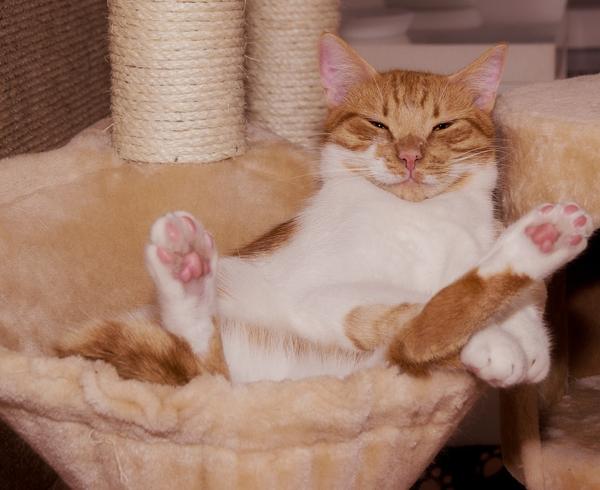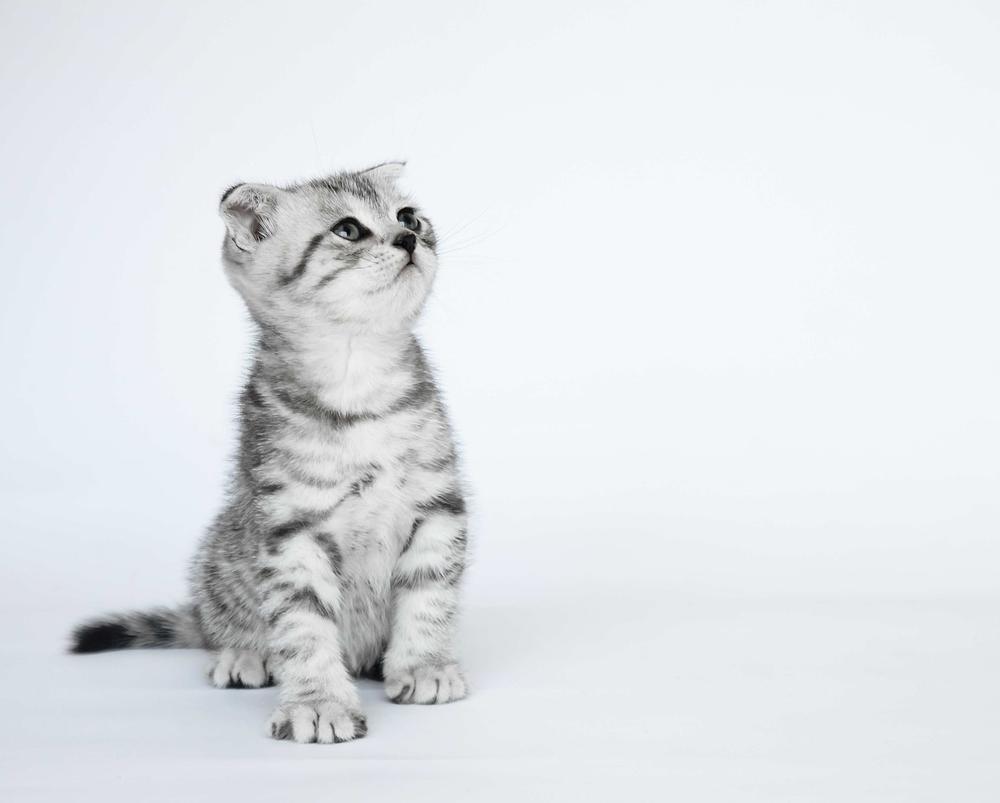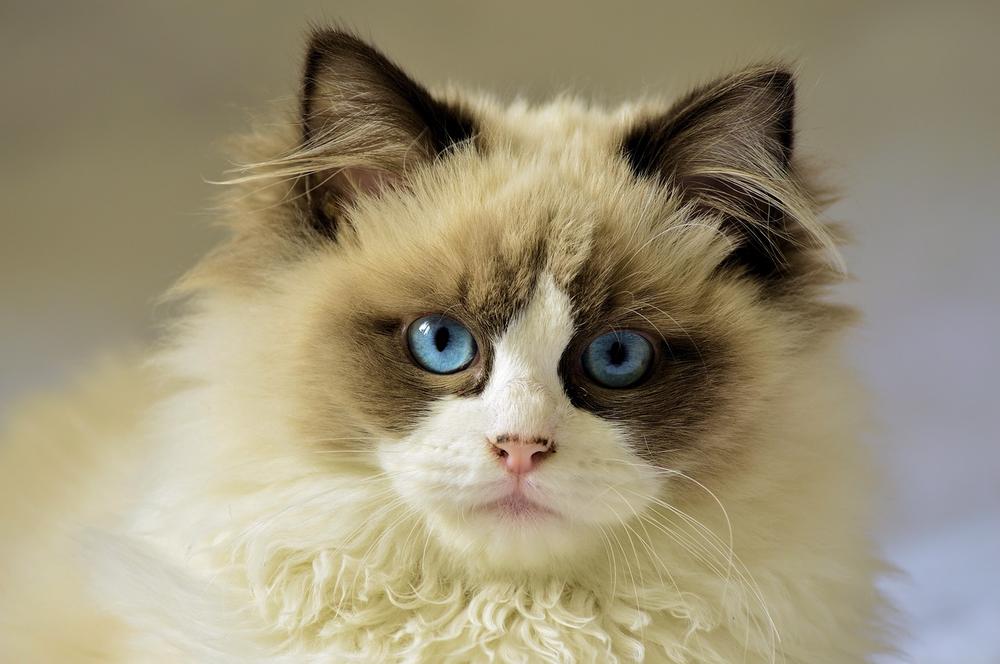Pregnant Cat Eating a Lot: Here's What You Should Know

Are you wondering why your pregnant cat is eating like a bottomless pit?
I feel ya, it can 🤔 be alarming when it seems like she's devouring everything in sight.
But hey, I've got your back.
Let's dive into why and find some answers, shall we?
Why Is My Pregnant Cat Eating So Much?
Pregnancy hormones and increased nutritional needs
When a cat is pregnant, she gets super hungry because of pregnancy hormones.
Her body changes a lot during pregnancy to prepare for the kittens, which means she needs extra nutrition. More protein and calories are necessary to help the little ones grow strong and healthy.
So, naturally, your pregnant cat will eat more to meet these increasing nutritional needs. It's like her way of making sure her babies have everything they need.
Other factors contributing to increased appetite
Sometimes, it's not just pregnancy causing a cat to eat more.
After giving birth, a mother cat still needs to eat a lot to keep up with nursing her kittens.
Taking care of those adorable furballs requires a ton of energy!
Furthermore, things like overeating, hyperthyroidism, diabetes, parasites, gastrointestinal issues, and even morning sickness can make a cat hungrier than usual.
Other signs of a pregnant cat
If you think your cat might be pregnant (and the food supply disappearing quickly is a good clue), there are other signs to look for.
Weight gain is a common indicator of feline pregnancy.
So if your cat is getting a bit bigger, she may be expecting.
Another sign is changes in the size and color of her nipples.
Don't worry, it's normal for them to get larger and darken a bit when she's preparing for kittens.

Pay attention to any behavioral changes too.
Pregnant cats often start nesting behavior as they get closer to delivery.
They search for a comfy spot where they can give birth and raise their babies.
Oh, and one more thing:
A pregnant cat won't go through her usual heat cycle, so if you notice she's not yelling at other cats, she's probably pregnant!
So, there you have it...
When a pregnant cat eats like crazy, it's completely normal.
Mother Nature is just making sure the pregnancy goes smoothly and the kittens are healthy.
Furthermore, if you're wondering about whether cats eat more in the winter and how their diet and weight change during this season, I encourage you to check out this fascinating blog post I've written: Do Cats Eat More in the Winter.
It dives deep into these questions, providing valuable insights that will satisfy your curiosity and concerns.
Don't miss out on this informative guide that caters directly to your proactive nature.
How Much to Feed a Pregnant Cat
When it comes to feeding a pregnant cat, there are a few key points to bear in mind:
- Gradually increase the amount of food given as her pregnancy progresses to meet her nutritional needs.
- During pregnancy, a cat's food intake may need to be up to twice their normal amount to support the growing kittens.
- A weight gain of 40 to 50 percent is typical and should be monitored for a healthy progression.
- Regular monitoring and adjustment of feeding practices are necessary for proper growth of the kittens.
- Weighing the kittens at least twice daily ensures they are consuming enough food, and additional feeding may be needed if their weight stagnates or decreases.
- Before delivery, gradually increase the food portions by about 50 percent and allow the cat to nibble on the day's ration.
- Fresh water should always be available for hydration and energy needs. 😺
- Late pregnancy requires extra energy due to rapid kitten growth, so allowing free eating can help prevent pregnancy toxemia.
- Labor signs include swollen nipples and excessive grooming, usually occurring between week nine and ten in the chosen nesting spot.
- An ultrasound can confirm pregnancy, after which pregnant cats should be provided with a balanced diet suitable for their condition.
Remember to always consult with a veterinarian for specific advice tailored to your cat's individual needs.

And it gets better...
Not only do we have the feeding guidelines down, but now we'll share some valuable tips on feeding schedules for your pregnant cat.
Stick around to discover how many meals per day she needs and why her food intake might change as the due date approaches...
How Many Times Does a Pregnant Cat Eat a Day?
For a pregnant cat, you must provide four to six small meals per day.
This ensures she gets the necessary nutrition without overwhelming her digestive system.
Make sure to have food and water easily accessible for the mama-to-be.
Feeding her smaller meals throughout the day is best, using premium kitten-specific food.
If the litter is larger in size, she may require even more frequent small meals.
As the due date approaches, don't be surprised if your furry friend significantly decreases her food intake.
Can You Overfeed a Pregnant Cat?
To keep your pregnant cat from getting too full, here are 12 guidelines for you to follow:
- Pay attention to the risks of gaining excessive weight.
- Feed your cat with common sense and in reasonable amounts.
- Keep an eye on her eating habits to make sure she's satisfied.
- Don't go overboard with the food during early pregnancy.
- Prevent any weight-related problems before they pop up.
- Deal with boredom, anxiety, and sadness.
- Give her a balanced diet with all the nutrients she needs.
- Adjust portion sizes based on what your cat actually needs.
- Make sure she doesn't get underfed so that she can stay active.
- Think about possible health issues for both momma cat and kittens.
- Find the sweet spot between feeding too much and not enough.
- Look out for signs that labor is coming, like if she seems restless.
To ensure the well-being of your expectant feline and promote a seamless birthing process, you can take these measures.
Let me break it down for you: There's more valuable information further down the blog post. I advise you to continue reading because you'll find tips on changing your cat's food and ensuring a smooth transition.
And now, let's dive into some valuable tips on how to meet the nutritional needs of your pregnant cat and ensure a healthy pregnancy and birthing process for both mother and kittens...
What to Feed a Pregnant Cat
Here's some advice on feeding a pregnant cat.
Keep these tips in mind:
- Get good quality kitten food.
- Make sure it has enough calories, protein, vitamins, and minerals.
- Switch to kitten food by the fourth week of pregnancy.
- Gradually switch to better quality kitten food.
- Look for easily digestible food with higher levels of protein and calories.
- Offer both wet and dry kitten food for hydration and nutrition.
- Balance their diet to prevent complications.
- Mix wet and dry food to meet their dietary needs.
- Always keep fresh water available.
- Don't be surprised by a bit of red discharge near the vulva before birth.
- Prepare a quiet area for her to give birth.
Remember to watch outdoor cats closely and keep them indoors during the last two weeks of pregnancy.
Neuter the cat after the kittens are born to avoid more unplanned pregnancies.
Be careful with vitamins and minerals, and don't overdo it with blueberries to avoid tummy troubles.
Lastly, consider checking out Snowshoe cats and polydactyl cats – they're rare breeds worth exploring!
Tips for Changing Your Cat’s Food
When you're switching up your cat's food, here are some pointers for you:
- Slowly introduce the new grub over a span of 7-10 days.
- Take your time to prevent tummy troubles.
- Seek advice from a vet about their nutrition.
- Mix more and more of the new chow with less and less of the old stuff.
- Be patient and let your cat adjust at their own pace.
- Keep an eye out for any signs of stomach upset.
- A nursing cat might need some alone time.
With these tips, you can make the change easier for your furry pal.
Also, keep an eye on their behavior during this transition period.
If any worries pop up, talk to your vet.
Nurturing your cat's nutritional needs is crucial for their health and happiness.
Pregnant Cat's Increased Appetite: Final Thoughts
- During pregnancy, a pregnant cat's nutritional needs increase for kitten development.
- Increased appetite in cats can be caused by various factors.
- Visible changes during pregnancy include weight gain and larger nipples.
- Regular monitoring and adjustment of feeding practices is necessary.
- Weighing kittens ensures they are consuming enough food.
- Gradually increase food portions before delivery.
- Fresh water should always be available for hydration.
- Feeding small meals throughout the day is important.
- Avoid overfeeding and pay attention to portion sizes and food types.
- Transition to kitten food in the fourth week for added nutrition.
And that wraps up today's article.
You've reached the end of my blog post, so let me ask you... Did you enjoy it? I've put a tremendous amount of effort into creating informative and comprehensive posts. It does take quite a while (but in a good way) to craft these articles, so it would mean so much to me if you could click on any of the social sharing icons to help spread the word about this post. Thank you so much!
Talk soon,
-Sarah Davis